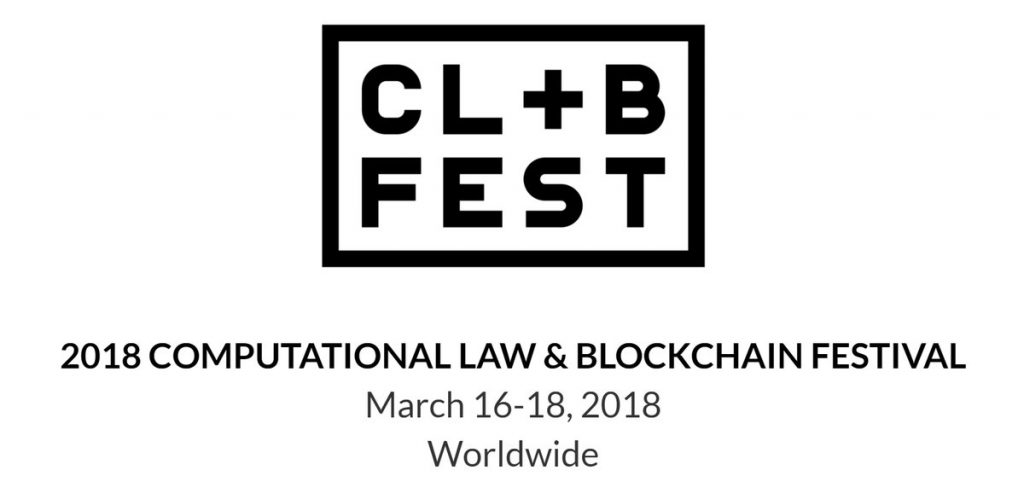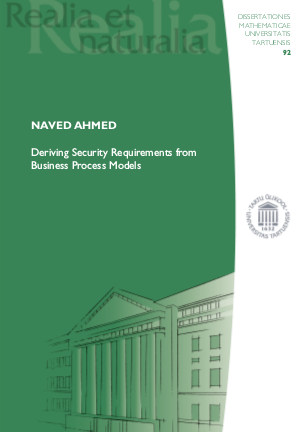The first annual Computational Law & Blockchain Festival (#clbfest2018) is a three-day global event bringing together coders, designers, lawyers, policymakers, researchers, and students to co-create the future of law, legal practice, and policy. In the spirit of decentralization, the Festival will be hosted at independent, self-organized nodes in cities around the world.
DETAILED SCHEDULE (amended):
16 March 2018 @ Näituse 13a-201, Tartu
COFFEE OFFERED
10:15-11:45 TRACK LEARN
Electronic signature and enforceability of electronic contracts in civil law countries
Presentor: attorney Liisi Jürgen, NJORD Law Firm, lecturer of the IT Law Master´s programme
COFFEE BREAK
12:00-13:30 TRACK LEARN
Digital identities, e-residency and e-wallets – identity and digital footprint
Presentors: attorney Anne Veerpalu and attorney Liisi Jürgen, NJORD Law Firm, lecturers of the IT Law Master´s programme
13:30-15:00 TIME FOR A BREAK
(no lunch is offered by Legal Hackers)
15:00-15:45 TRACK LEARN
Decentralization and innovation ecology – what type of ecology is needed for legaltech to accelerate it innovation? Introducing many technologies which in themselves are not going to revolutionize everything.
Presentor: Michael Gallagher
COFFEE BREAK
16:00-17:30 SESSION 3: COMPUTERIZED LAW
Visualisation of law: An Automated Legal Content Capture and Visualisation Method (Automaatne meetod õigusteabe hankimiseks ja visualiseerimiseks)
Presentor: Ermo Täks, PhD (Computer Science, TTÜ)
17:30- 18:15 SESSION 3: INTRO TO SMART CONTRACTS (pre-recorded)
TBA
Presentor: Dr. Martin Ploom, who has worked for the last years for Man Investments, Credit Suisse and UBS in In-house Consulting / Project Management roles. He is an MBA, Dipl. Inf., Ms. Ec. and finished CFA Level III in 2010. He has been a crypto currencies enthusiast since Autumn 2012.
17 March 2018 @ Näituse 13a- 201, Tartu
COFFEE OFFERED
10:15-11:45 TRACK LEARN
Virtual currencies: legal and tax issues
Presentor: attorney Priit Lätt, PWC Legal, lecturer of the IT Law Master´s programme
11:45-13:00 TIME FOR A BREAK
(no lunch is offered by Legal Hackers)
13.00 – 13:30 INTRO TO HACK TRACK WILL TAKE PLACE @ Näituse 13A, TARTU
24h Hackaton – participants are welcomed to either listen to the next LEARN TRACK SESSION 3 or go to a separate location to work with their team
Hackaton location: J. Liivi 2 – 111, Institute of Computer Science, University of Tartu
Open from 1 pm on 17th March
Coffee break at 3 pm- 3.30 pm
Moderator: Stanislav Degtjarjov, Agrello.io
GLOBAL HACKATON registration available here:
https://docs.google.com/forms/d/e/1FAIpQLScQPaWitG8GKZ0xTdipHptwZlBeH9atPGjScI5768pRl5mC0w/viewform
LOCAL HACKATONS introduced at SESSION 2 and 1 pm on 17th March @ Näituse 13a, Tartu
13:30-16:00 TRACK LEARN/DISCUSS
SESSION 3: Blockchain Computing & Its Security Challenges
* Miao ZhiCheng, from decentral.ee, ex Skyper, ex. Twilion – “Blockchain computing vs. traditional computing – an overview”
* Dr. Marlon Dumas “Automating Business Processes With Smart Contracts”
* Agrello team : “Smart contracts technical standards”
* (recorded video) Dan Selman, from claus.io, “Accord Project – The Techno-Legal Standards”
* Risto Alas from Guardtime – “the DAO and the vulnerabilities discovered in Ethereum smart contracts”
* Taimo Peelo, “Ethereum Honeypots”
PANEL led by Miao ZhiCheng
16:15-16:45 TRACK LEARN
Tax issues at ICO and post-ICO
Presentor: attorney Elvira Tulvik, MAGNUSSON


